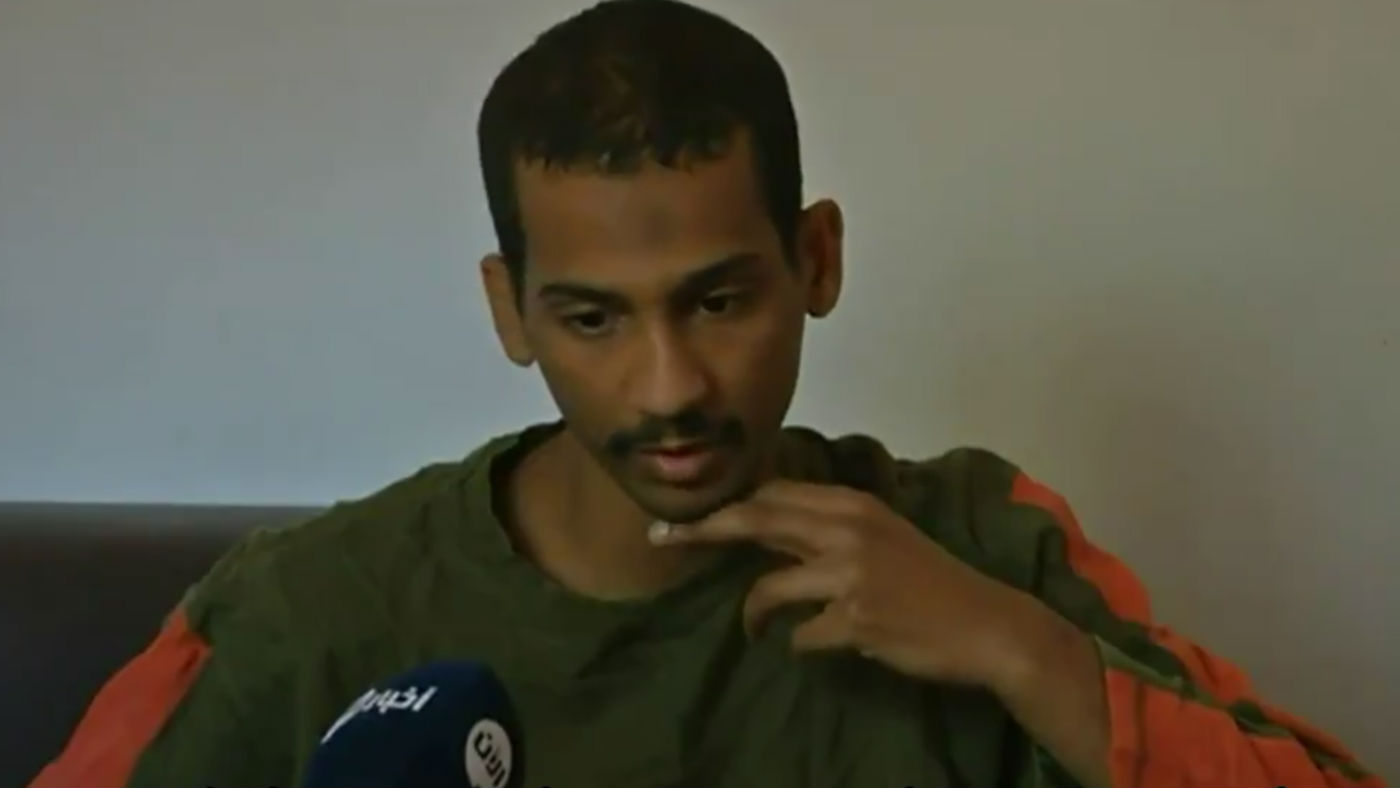Islamic State ‘Beatle’ backs slavery, disagrees with traffic tickets
Captured jihadi El Shafee Elsheikh tells reporter ‘I would do it all again’

A free daily email with the biggest news stories of the day – and the best features from TheWeek.com
You are now subscribed
Your newsletter sign-up was successful
A British Islamic State fighter who was one of the so-called ‘Beatles’ has defended the terror group’s atrocities in a chilling interview.
El Shafee Elsheikh, 29, was “detached and hostile” during the interview, refusing to make eye contact and repeatedly declining to answer questions. He told Al Aan reporter Jenan Moussa that he had no regrets about his time in Syria.
Elsheikh is accused of participating in torture and murder as one of the so-called “Beatles”, four British IS fighters given their nickname by captives who heard their English accents.
The Week
Escape your echo chamber. Get the facts behind the news, plus analysis from multiple perspectives.

Sign up for The Week's Free Newsletters
From our morning news briefing to a weekly Good News Newsletter, get the best of The Week delivered directly to your inbox.
From our morning news briefing to a weekly Good News Newsletter, get the best of The Week delivered directly to your inbox.
“The brutal group held more than 20 Western hostages – and beheaded seven American, British and Japanese journalists and aid workers and a group of Syrian soldiers,” says the Daily Mail. Their victims include British aid workers David Haines and Alan Hemming, and US journalist James Foley.
Gruesome videos purporting to show these atrocities were distributed online, adding to the group’s notoriety.
Elsheikh, who was born in Sudan but grew up in west London, denied that he had participated in torture or beheadings and said that he did not watch the videos.
However, he defended Islamic State’s use of Yazidi women as sex slaves, which he said was justified in Islamic scripture. “I do not denounce slavery,” he said.
A free daily email with the biggest news stories of the day – and the best features from TheWeek.com
Asked if he disagreed with any of the terror group’s actions, he said: “Traffic tickets and other such things that have no place in the law of Allah.”
Asked about their “Beatles” nickname, Elsheikh said he did not listen to music, which is considered “haram” (forbidden) by some conservative sects of Islam. However, he added: “'I don't think John Lennon would like it much.”
Off-camera, Moussa said, he bragged:“I would do it all over again.”
The journalist tweeted afterwards that she was “struck” by Elsheikh’s lack of remorse, as well as his hypocritical attitude towards the West.
Elsheikh and Kotey, who have been stripped of their British citizenship, are being held in Kobane, Syria by Syrian Democratic Forces while the UK government and international allies decide where they will face trial.
The group’s ringleader, Mohammed Emwazi - nicknamed Jihadi John - was killed in November 2015 by a US drone strike. The fourth member, “Paul” - real name Aine Lesley Davis - is serving a seven and a half year prison sentence in Turkey for terror offences.
-
 Local elections 2026: where are they and who is expected to win?
Local elections 2026: where are they and who is expected to win?The Explainer Labour is braced for heavy losses and U-turn on postponing some council elections hasn’t helped the party’s prospects
-
 6 of the world’s most accessible destinations
6 of the world’s most accessible destinationsThe Week Recommends Experience all of Berlin, Singapore and Sydney
-
 How the FCC’s ‘equal time’ rule works
How the FCC’s ‘equal time’ rule worksIn the Spotlight The law is at the heart of the Colbert-CBS conflict
-
 Epstein files topple law CEO, roil UK government
Epstein files topple law CEO, roil UK governmentSpeed Read Peter Mandelson, Britain’s former ambassador to the US, is caught up in the scandal
-
 Iran and US prepare to meet after skirmishes
Iran and US prepare to meet after skirmishesSpeed Read The incident comes amid heightened tensions in the Middle East
-
 Israel retrieves final hostage’s body from Gaza
Israel retrieves final hostage’s body from GazaSpeed Read The 24-year-old police officer was killed during the initial Hamas attack
-
 China’s Xi targets top general in growing purge
China’s Xi targets top general in growing purgeSpeed Read Zhang Youxia is being investigated over ‘grave violations’ of the law
-
 Panama and Canada are negotiating over a crucial copper mine
Panama and Canada are negotiating over a crucial copper mineIn the Spotlight Panama is set to make a final decision on the mine this summer
-
 Why Greenland’s natural resources are nearly impossible to mine
Why Greenland’s natural resources are nearly impossible to mineThe Explainer The country’s natural landscape makes the task extremely difficult
-
 Iran cuts internet as protests escalate
Iran cuts internet as protests escalateSpeed Reada Government buildings across the country have been set on fire
-
 US nabs ‘shadow’ tanker claimed by Russia
US nabs ‘shadow’ tanker claimed by RussiaSpeed Read The ship was one of two vessels seized by the US military